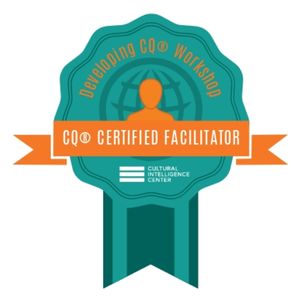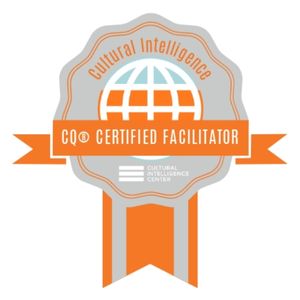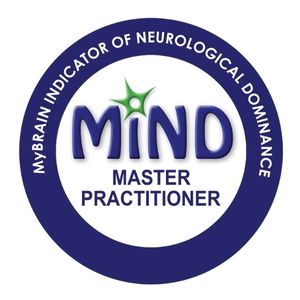Listen here:
Watch here:
Communication confidence – what does that look like to you? What does it feel like? You will have your own version of confidence and I am exploring in today’s podcast episode how we can make it work for you.
Confidence is one of the key foundations of my 4 pillars of Global Leader Communication, and I share my reframe on confidence and why it can feel challenging at times to communicate confidently.
Plus discover my ideas for you to start developing your confidence for key situations, including an introduction to my IMPACT model.
What you will learn in this episode:
- Exploring your version of confidence
- How confidence impacts your performance now
- How to develop your confidence
- The role of feedback
- Discovering your current beliefs
- Build your new confident identity
- Practice makes confidence
- Introduction to my IMPACT model for confidence building
Find out more:
Transcript:
Hello and a very warm welcome to Cultural Communication Confidence, with me Victoria Rennoldson, and welcome to this episode, where we are talking all about Confidence. Now, this is a deep dive into this topic, and we started last week talking about the pillars of global leader communication, so last week, we were talking all about Clarity, and if you haven’t had a chance to listen to that episode, really recommend you go back and listen to that one as well, and I’ll put a link in the show notes.
Today I want to talk about the second pillar, which is about confidence, and this is such a key topic, because it is important no matter what stage you are in your career, whether you are right at the beginning, mid-career, or whether you’re already a senior leader in your organisation. Confidence questions, confidence challenges… we can experience these at every stage, so I want to share here, today, some thoughts about confidence – where it comes from, how we can build it up, and some starter ideas and tips for you, which I’m going to share in this short episode. However, if you do feel like confidence is a challenge for you, then I do encourage you to get support. And I’m very happy if you want to reach out to me and have a conversation around this, then please feel free to do that, and I’ll again put my details in the show notes.
But to start with, I want you to explore WHEN you actually last felt confident. So if this feels comfortable, I’d love you actually to do this exercise with me now, as long as you’re in a safe, quiet space, and it is possible for you to do this. Otherwise, please feel free to revisit this exercise later. So, if you are somewhere where this is possible, just close your eyes briefly, for a moment. And I want you to think back to the last time that you felt confident – even if that was a long time ago, I want you to go there. Do you have that in mind? Great. I want you to then think about where in your body does that confidence live? Where do you notice it being? Is it in your stomach? In the centre of your chest? Maybe it’s even in your hands, and your feet. Just notice now, where is that confident feeling living? And how does it actually feel? Is it fizzy, or bubbling, that’s how sometimes people experience it. Or is it more of a calm, grounded feeling, a knowing, a sense of belief? Again, just notice it, and note it. Fantastic. And then the final question is – is there a particular colour that you associate with confidence? Is it a bright yellow? Or a deep red? Or what colour comes to mind when you’re thinking about it? Fantastic.
Well, I’m going to bring you back now, so if you have your eyes closed, just gently wriggle your fingers and toes, and open your eyes, and bring yourself back to the moment. That short exercise I hope was really interesting for you, to reflect on when you have felt confident, even if it was was a long time ago, and how that feels to you. I think so often we live in our brains, in our minds, and we get very busy thinking and acting, but not so much tapping into the feelings, so that little exercise is a great way to remind us that we have felt confident, at some point in the past. Now you have that, I want to share a few things that people say about confidence – I know that I’ve heard people say to me: ‘well you either have it or you don’t’. And I think that belief, that way of looking at things, is not that helpful to us. In fact, I don’t believe you’re born with confidence, I believe everybody can develop their own version of confidence. What I mean by that is, we don’t all have to show up in our confidence in the same way.
For some people, that will be a loud extrovert version of it. For others, you may have a more internal reflective style of confidence, so I don’t believe you either have it or you don’t. The other thing that people sometimes say to me is: ‘well it’s all right for that person, they’re confident’. Now, that’s an interesting statement, because it makes the assumption, that person feels confident all the time, and again, I want to really bust this myth, I just don’t believe it’s true. No matter how confident somebody appears to be on the outside, everybody has their ups and downs, it’s a journey that we go on. There are days when we do feel it, and there are days when we really don’t, even if we don’t necessarily show that to the outside world. It’s almost like a thermometer with a temperature, where the thermometer moves up and down with the temperature, this is exactly the same idea with your confidence – we have a confidence thermometer, and we can tap into that and understand it, but I want you to also know that, even the most confident speakers, have days when they’re not feeling that confident, and again, I think that’s a really helpful thing to share with you here today.
But how do you feel today? Well, I wonder whether you feel some of the things that I know the people I talk to share with me: they feel the pressure, and stressed before major meetings and presentations. Maybe you compare yourself to other people, and see this sense of ‘others are just so confident’. Maybe you’re a perfectionist, and actually, what’s happening is that you set yourself incredibly high goals, and you want yourself to sound and come across in a certain way. When you don’t hit, that that’s when the confidence challenges come in. So I want you to know, these doubts are normal, this sense of questioning yourself is normal, the imposter syndrome is normal, everybody feels it. And, in fact, it’s a normal way to think about this. If the idea that you don’t have confidence isn’t helpful, then move to this idea of: ‘you have a lack of confidence in this particular situation or context, or with this group of people’. So reframe it as a lack of confidence, or reduced confidence, in this scenario.
But the reality is, whatever you’re feeling, whether you identify with what I’ve been describing, or whether you have other ideas and thoughts that come up when you think about your confidence, the reality is, there’s a lot of noise going on in your head, and it can be incredibly distracting. It distracts us from being able to speak clearly, because we are so focused on what’s going on here, what we’re saying to ourselves. It also distracts us from connecting with the people we’re trying to talk to and influence, because again, we focus more on the internal than the external.
So how do we move through this? Well, I’m not going to pretend in this short episode that I’m going to give you all of the secrets and all of the keys to unlock your confidence today, but what I want to share are some starter ideas, some thoughts for you to take away, and consider: how can this help you? How could you apply this? And see if it starts to make that difference, so that you start to build up up your confidence muscle, and start to feel that ‘yes, it’s possible for you too’. It’s possible, not maybe every day, but on certain days, in certain contexts. So the first thing I want you to start with is to recognise what you’re good at. So what are you expert in? What do people value you for, recognise your strengths and how people appreciate you. It’s easy to forget this when we get busy, but I want you to really gather every piece of feedback that you’ve ever had, particularly more recent feedback, get all those positive comments together and recognise and celebrate that you are good at what you do, you bring something special and unique that is you. And if you don’t have feedback, come and ask me, I’ll give you feedback back, okay? So it starts there.
I then want you to really carefully think about: what are you saying to yourself? What beliefs do you have about your abilities to perform, to show up in certain situations, in certain meetings? I find that, when I’m working with people who have reduced confidence in their speaking and communication abilities, one of the challenges is that they actually have a very unhelpful monologue going on in their head, that’s telling them that they’re not very good, that they’re not going to do well, that they are not very good at speaking. I want you to identify, and maybe it’s something you don’t even recognise that you’re saying to yourself, but maybe you need to journal on this, or do some writing reflections, but consider this: what are you saying to yourself? That’s step one. Step two, is then rewriting the story, really considering: how can I reframe this to make it more positive? For example, use the power of the word ‘yet’, I did a LinkedIn post all about this word recently, so I’ll put a link to that in the show notes, if you’re interested. But briefly, that word, ‘yet’ is powerful. You can say things like: ‘I am not a confident speaker, yet’. Or: ‘I don’t feel fully comfortable standing in front of a large audience, yet’. So that just helps you to frame that it’s going to come, but you’re not there, in this current moment. So that’s all about your beliefs, what are you saying to yourself.
Next, I want you to think about yourself as confident, I want you to build a new confident identity. So if you were confident, how would you stand? How would you sit? How would you walk? How would you show up in the meeting? Think about that, think about what that would look like. And it might help you to think about people you know around you, who look confident, and understand what they’re doing, in the way that they see, sit, stand – how they show up in the meeting. That’s an interesting idea, pick out what is relevant for you, so you build up your own version of your confident identity.
Then, take a step, take a micro step – what is important in all of this is that confidence also comes from feedback. So for us to move forward, we need to be participating, we need to be in those meetings, in those presentations, having a go. And what I want you to know is that, practice makes confidence – a twist on the phrase ‘practice makes perfect’, because we’re not aiming for perfect here, we’re aiming to build up our confidence muscle – the more you practice, the more feedback you get, this is a positive feedback loop, and it will help you to build up that sense of ‘I can do this’ I believe in myself’. The final idea that I want to leave you with today is that when I’m working one-to-one with my clients, I use the IMPACT model, My IMPACT model, to help them with building up their confidence and presence, particularly for presentations and public speaking, but it also can be applied for meetings and for day to day. Now I’m not going to go into the details of all of the model here today, but I will focus on the first part of it: ‘I’, which is ‘Intention’.
And I advise my clients to really think about what is their intention for how they show up in those meetings, in those presentations. It connects to your confident identity, and what kind of energy you want to bring that’s in line with who you are. Are you looking for a really upbeat, energetic, confidence vibe? Or are you looking for that very grounded, calm and centered person identity, that you bring the energy to the meeting? So consider that, what’s your intention with your energy? How do you bring that to your next meeting, your next presentation? So there we go, we have covered a few ideas very briefly here today, and what I do want you to know is that, if you are struggling with confidence, you’re not alone, there is support, I’m here if you want to talk to me, and equally, there are many other people who can support you in this area.
What I particularly help people with is their confidence in their speaking, and confidence is is one of the pillars of the 4 pillars in my global leader communication: Clarity, Confidence, Connection and Challenging conversations. If this is something that resonates with you, and you know confidence is an area that you struggle with, and you would like to develop, particularly for your communication skills, then I would love you to book a communication assessment with me, so I can understand your situation better, help you explore this IMPACT model and how you could apply it to your situation, and see how we can support you. So if you’d like to take me up on that offer for a complimentary communication assessment, please feel free to go to www.culturecuppa.com/communication-assessment and I’ll put the link in the show notes as well.
Well, that brings us to an end for today’s episode. I do really hope you found that valuable, and I want you to reflect on: how are you going to develop your confidence? What’s the first step that you’re going to take on your confidence journey? Make sure you do that step today, and let’s make sure you’re moving forward with these micro steps, so you start building up your confidence muscles. Thank you so much for joining me here today, it’s been an absolute pleasure to see you again, and I look forward to seeing you next time, on Cultural Communication Confidence.




